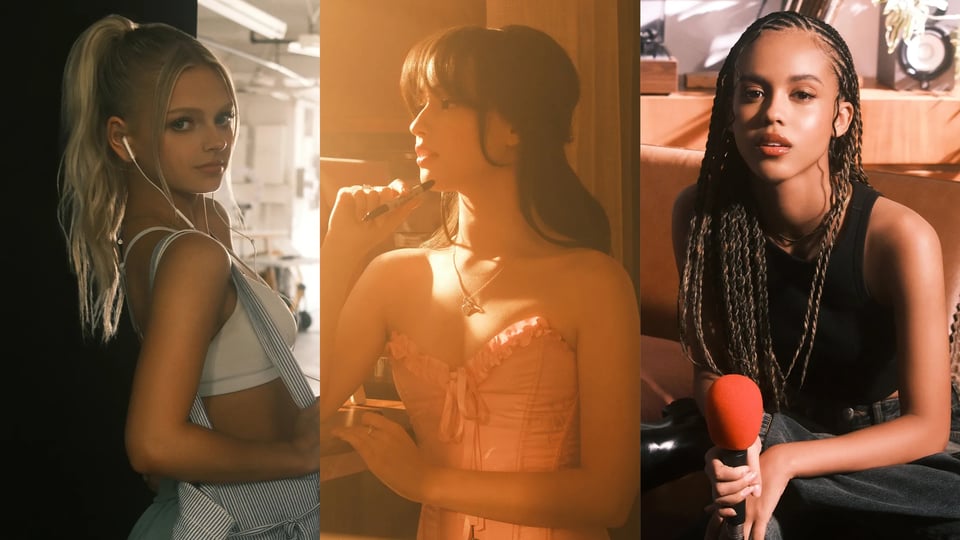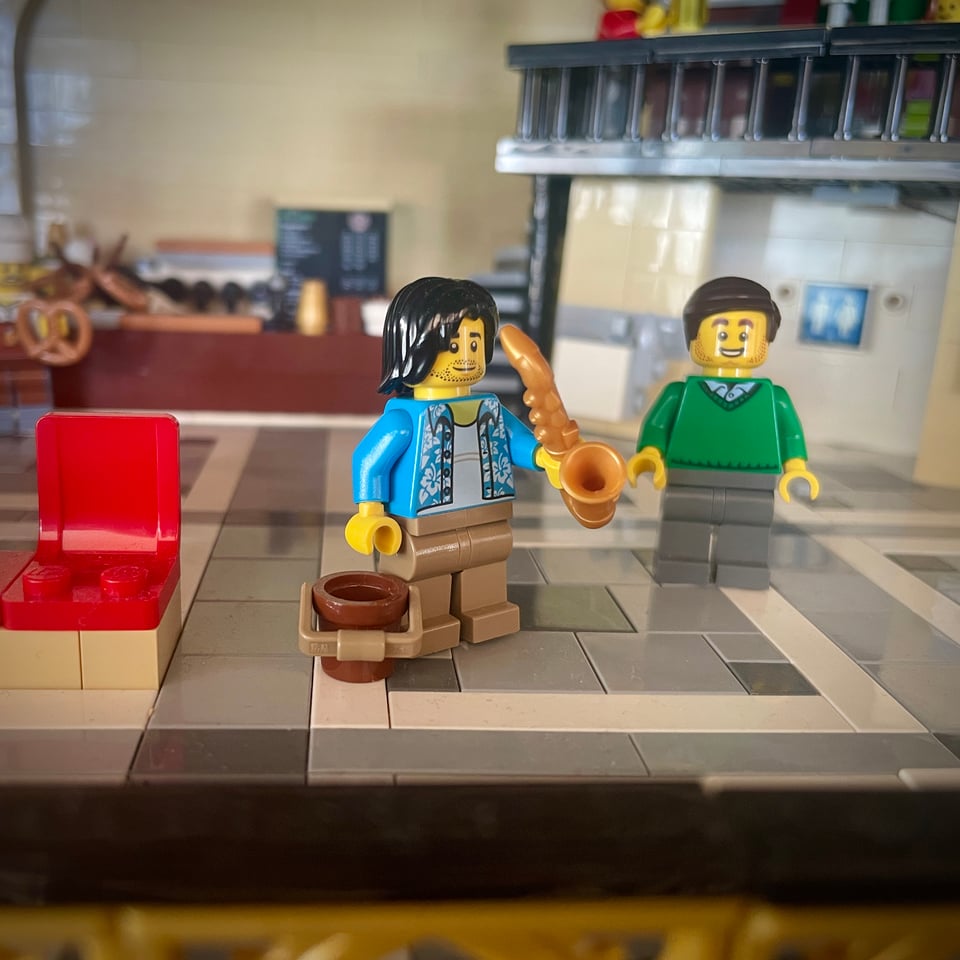This week I finally got around to watching Netflix’s Popstar Academy: Katseye (you’d be forgiven for thinking this means there’s more than one Popstar Academy, but I think the title just reflects a desire to cash in on the name of the eventual group). This show’s a year old, but I’m delivering this ice-cold take because Katseye are finally starting to enjoy mainstream attention, appearing at Lollapalooza, the VMAs and in a brand new GAP campaign. And because last month a sequel was announced. Check them out:
Popstar Academy is a documentary series that was filmed over two years while 20 young women from all over the world went through an intense bootcamp based on the K-pop idol training methodology, brought to the US for the first time by HYBE (the company behind BTS and a string of other successes) and Universal’s Geffen Records.
The K-pop trainee model is both awe-inspiring and unsettling. Aspiring idols in South Korea can train for years — vocal lessons, dance drills, language study, media coaching, gym sessions, diet regimes — all before they ever set foot on a stage and most never do. The promise is clear: if you give everything, you might be chosen.
In the West, we’ve clung to a different myth. Pop prodigy discovered online, or the overnight sensation who “just has it”. Katseye collapses those stories into one. It imports the discipline of Seoul into the hollywood mythology of Los Angeles.
Watching it, I kept thinking: this isn’t just a music competition. It’s sort of a cultural export of optimisation. Train harder and iterate faster and always be improving. It’s not enough to be talented — you have to perform the process of becoming talented.
And the process was gruelling. One trainee fractured her foot; another needed hip surgery. The constant message as they were evaluated and ranked against each other was that they would only be picked if they worked harder than the girl next to them. They fought over booking training room slots, and came to class early and left late.

And all the while the audience knows something the trainees don’t. They’re not going to be picked for their hard work. Despite all assurances to the contrary by the producers, they wind up being put into a Korean-style survival show and left to campaign for fan votes on social media.
For better or worse, K-pop trainees sign on for this. They dream of debuting and they know what it takes to get there. Their consent is still compromised on some level — I mean, they chose this path, but under conditions that demand total surrender. And which have, historically, led far too many to take their own lives.
But the contestants on Popstar Academy were pretty much completely misled, and only found out two years into the process — having moved their lives (and in the case of the minors, upended their families) to LA in pursuit of this dream. What’s the moral weight of that? We tell ourselves it’s just entertainment, or opportunity, or cultural difference. But the show’s real subject seems to be labour: how much of yourself can you give before there’s nothing left to sell?
It’s not that Katseye is uniquely cruel, it’s more that its cruelty is fully transparent to its audience, if not its stars.

And then there’s us — the audience. Fans aren’t passive anymore; we’re co-workers in the dream factory. We translate clips, track every rehearsal, flood comment sections with encouragement, and lobby for our favourites in endless voting rounds.
Fandom becomes its own form of labour. The parasocial and the professional blur. We tell ourselves we’re supporting these girls, but we’re also fuelling the same machine that demands their perfection and cuts them down when they don’t make it.
Still, it’s impossible not to root for them. You see the joy that survives in spite of the grind, the flashes of real friendship, the stubborn belief that work can become art. We keep watching, and they keep performing, because somewhere in all that choreography we still want to believe in that dream of stardom. And with as much money as HYBE x Geffen have put behind this, Katseye are certainly destined to be stars.
If you’re looking for more detail on all of this, I really enjoyed this youtube essay:
HYBE x Geffen are, of course, undeterred by any criticism. They’ve now announced a new project called World Scout in which three of Popstar Academy’s rejects will form a new girl group with a worldwide hunt for a fourth member. Both Emily and Samara made it to the top ten of the first show. Lexie, the third member, left the show when she found out they would be pitted against each other in a survival competition. Fascinating to see they found a way to get her back.

In an era when the solo pop queens are the new rock gods, I’m watching with interest to see if this bet on global girl groups pays off.
(speaking of ads for the GAP, this hit me right in my music nostalgia feels, you’ll love it)
more good stuff
i’ve been meaning to write for ages about Portland’s bike bus, and the news that Benson Boone joined it this week is a great excuse. If you ever need a little joy in your life, check out Coach Balto on socials. Justin Timberlake joined the ride in January. I road my bike to school as a kid and it was never this great.
i was super fascinated by this article about netflix’s attempts to create a sort of overarching offline fandom — a kind of disney adult but for netflix shows. i literally cannot tell you which platform most shows are on, so … good luck with that i guess.
Yet Netflix seems eager to raise its own generation of devotees—something akin to the “Disney adults,” who incorporate their love for the world of Mickey Mouse (and his many friends) into their lifestyle. Netflix doesn’t offer theme parks, decades’ worth of merchandise, or an extensive coterie of fairy-tale princesses for fans to dress up as every Halloween. But it has a clear interest in pursuing such ventures: The streamer has announced an immersive year-round installation opening later this year in Philadelphia and Dallas. Dubbed “Netflix House,” the space will allow visitors to take photos in re-created sets, purchase themed meals, and even play a round of mini golf on a course that references popular shows and movies. “I do sense Netflix trying to cultivate that brand-name loyalty,” De Kosnik said, “or at least that sense that, like Disney, they are a universe that you want to play in.”
from meriko, I’m enjoying Weird Web October, where people have challenged themselves to make a website every day in October, based around a set of themes. This is a great example of the Good Internet.
finally, in my lego city

Share this with someone who hates girl groups.
You just read issue #41 of what you love matters. You can also browse the full archives of this newsletter.

Add a comment: